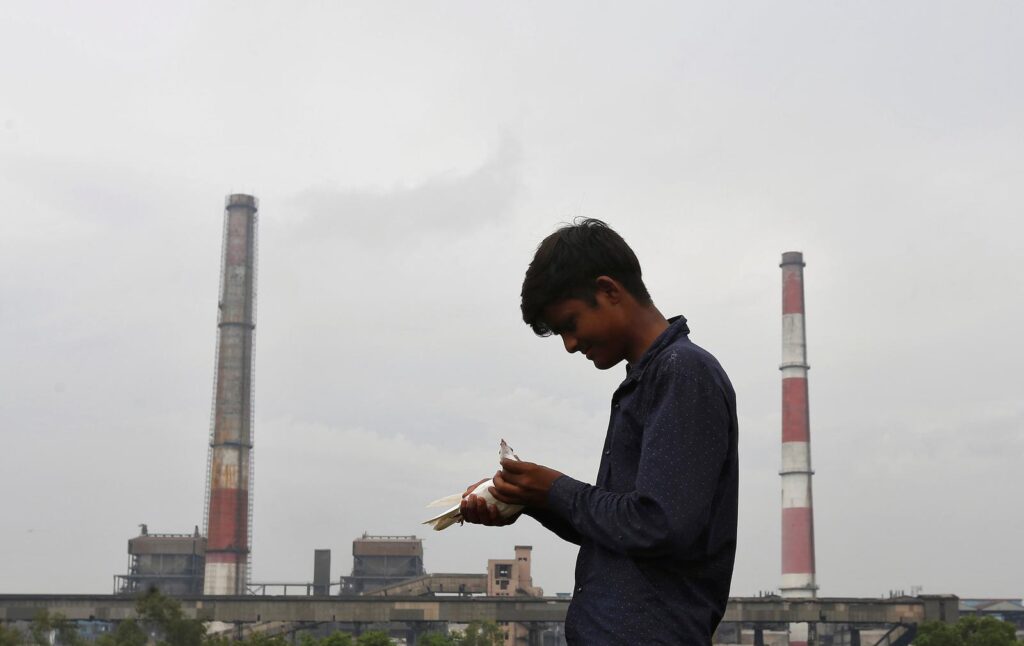Power Ministry Proposes Pushing Back Deadline For Emission Norms

FILE PHOTO: A boy examines a pigeon on a rooftop near a coal-fired power plant in New Delhi on July 20, 2017
In what could prove to be a severe blow to environmentalists, the Union power ministry has proposed pushing back the deadlines for adoption of new emission norms by coal-fired power plants, saying “an unworkable time schedule” would burden utilities and lead to an increase in power tariffs.
India initially had set a 2017 deadline for thermal power plants to comply with emissions standards for installing Flue Gas Desulphurization (FGD) units that cut emissions of toxic sulphur dioxide. That was later changed to varying deadlines for different regions, ending in 2022.
Under the latest proposal, no new dates have been set. However, a final decision will have to be approved by the Supreme Court, which is hearing the issue.
“The target should be to maintain uniform ambient air quality across the country and not uniform emission norms for thermal power plants,” Nishat Kumar, an official at the Ministry of Power said in a January 2 note to the country’s environment ministry, seen by Reuters.
“This could avoid immediate increase in power price in various relatively clean areas of the country (and) avoid unnecessary burden on power utilities/consumers,” Kumar said.
The power ministry proposed a “graded action plan,” whereby areas where plants are located would be graded according to the severity of pollution, with Region 1 referring to critically polluted areas, and Region 5 being the least polluted.
“Strict control of emissions shall be required in such key areas for thermal power stations categorised under Region 1,” Kumar said in the memo.
Plants in Region 2 could begin to take action one year after those in Region 1, he said.
“Presently no action is required for power plants that are situated under Region 3, 4 & 5,” he said.
Indian cities have some of the world’s most polluted air, much of which is blamed on coal-fired plants in close proximity to urban centres. Vehicular pollution, dust, industries and crop burning add to the bad air quality.
Sunil Dahiya, an analyst at the Centre for Research on Energy and Clean Air, said of the power ministry directive: “Such claims after 5 years of emission standards being in existence create a severe dent on the government’s image.”





